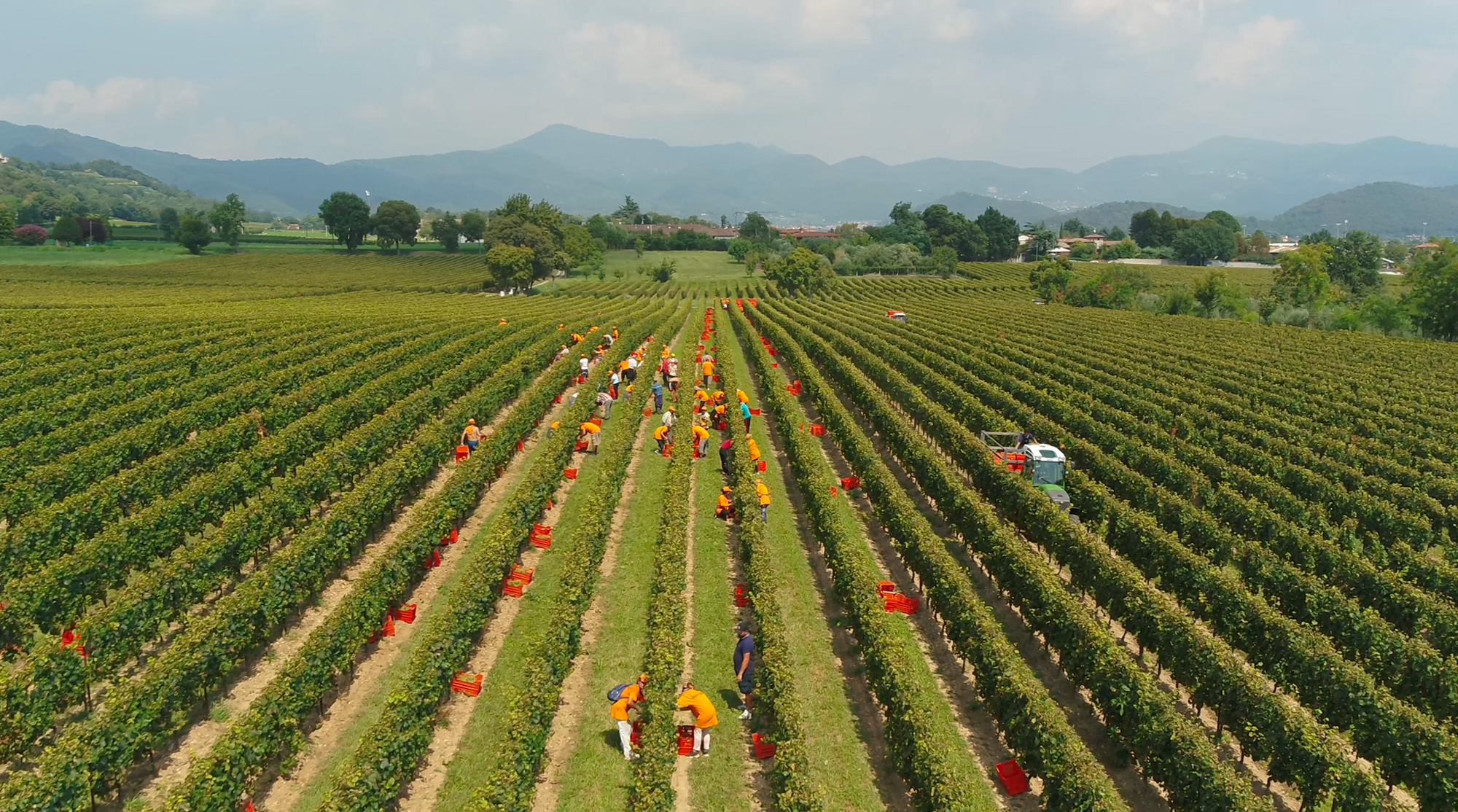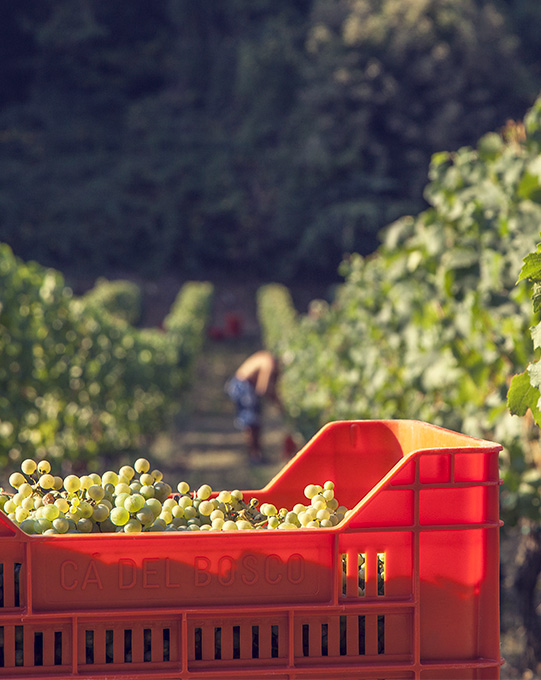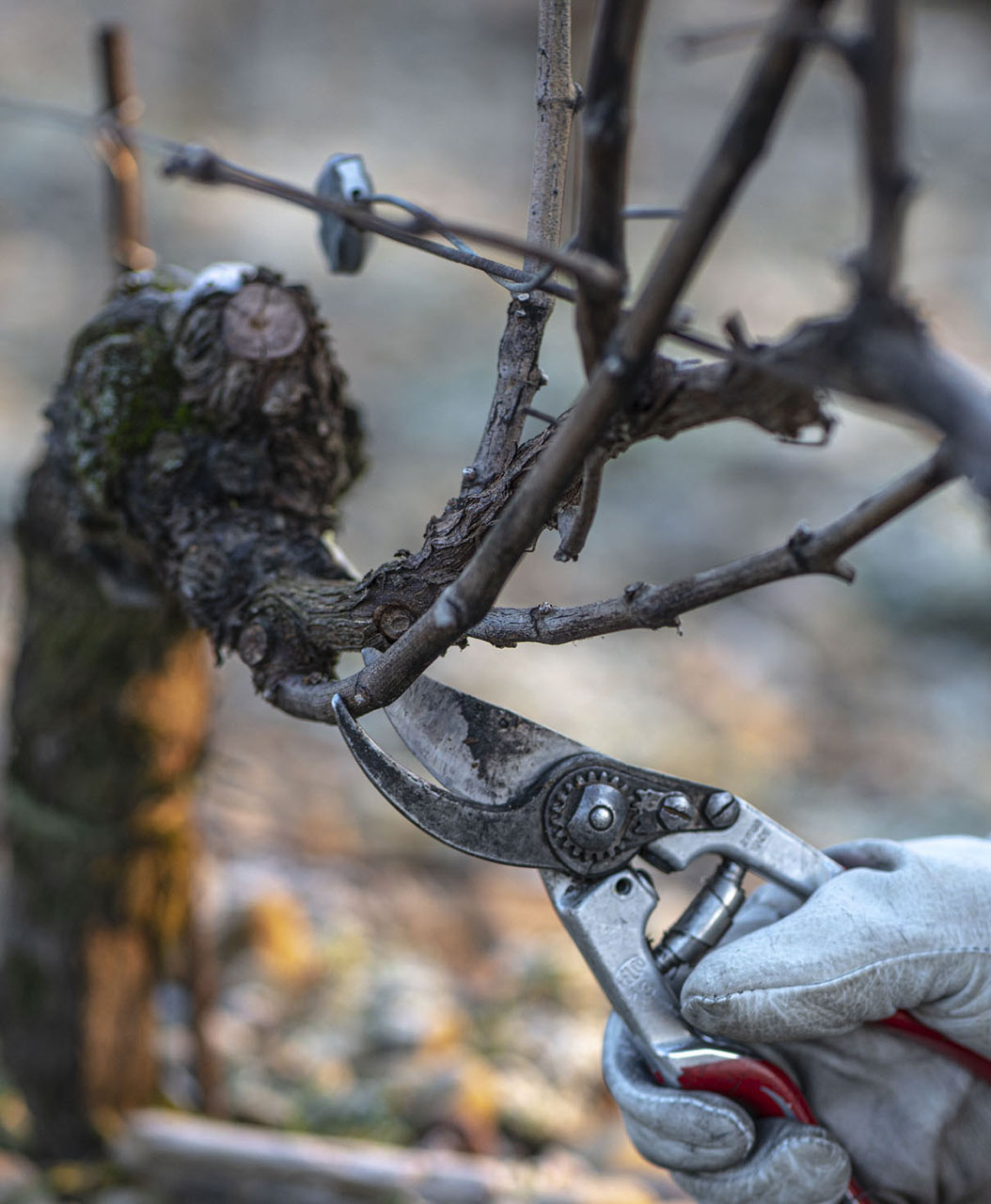
Certified organic growers since 2014
This land is our legacy. Tending a vineyard means recreating the best possible conditions, so that each terroir yields its best and displays the characteristics that make it unique. It means safeguarding all the elements that go into creating a natural habitat whose equilibrium is fundamental to supporting life. It means caring for it.
In material terms, we’re talking about a total of over 450 hectares of land tended and cultivated directly, of which about 281 hectares consist of vineyards cultivated organically for many years (the first experiments date back to the late 1980s) and certified since 2014, in addition to a considerable expanse of woods – about 112 hectares – distributed around the vineyards, and 54 hectares between meadows and fields, cropland, wooded borders and windbreaks, along with 4.5 hectares of olive groves. The diversity of crops favors the proliferation of wildflowers and other plants, forming a special ecosystem able to support many forms of life fundamental to the wellbeing of our habitat. To us, the most important thing about organic farming is respect for the environment and our soils:
it’s our way to give back to Nature in recognition of her generosity.
From the very beginning, at Ca’ del Bosco we have dedicated much time and effort to the study of Franciacorta’s soils, in order to be able to grasp its subtlest nuances. We have understood the importance of being able to read and interpret various types of soil stratification and composition, and above all their biodiversity, with the ultimate goal of enriching the complexity of our wines by searching out the special characteristics each terroir brings. It would not be an exaggeration to speak of an exploration of the soil, at various altitudes, which provided us with all the information we needed to select the right varietals, rootstocks and spacing. These are important decisions, whose effects are felt over the years and which are still making the difference today.
This commitment has resulted in a considerable daily effort, with our men and women contributing an average of nearly 600 hours/hectare annually.
 Biodiversity
Biodiversity Friend since 2024





